Odd Names
Bus Starts
Back in 1985, city officials in St. Louis decided that the term 'bus stop' sounded too negative, so they voted to rename them 'bus starts.' 1800 new 'bus start' signs were duly installed.A year-and-a-half later, when it became clear that people were confused by what a 'bus start' was supposed to be, the city conceded defeat and went back to using the traditional term. This, of course, meant buying even more new signs.
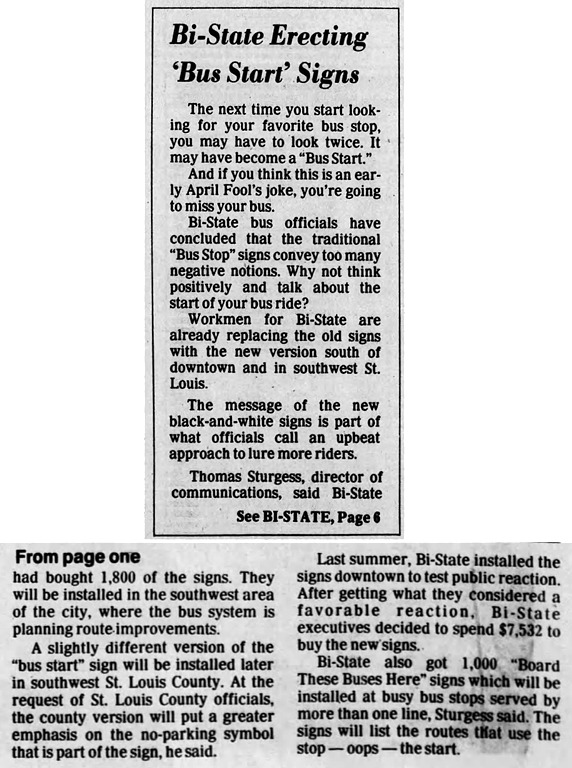
St. Louis Post Dispatch - Mar 28, 1985

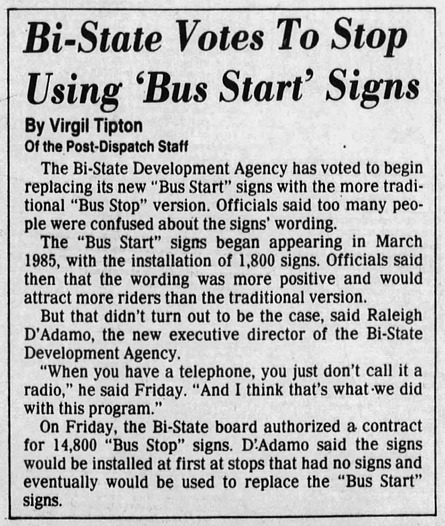
St. Louis Post Dispatch - Aug 24, 1986
Posted By: Alex - Tue Nov 06, 2018 -
Comments (4)
Category: Odd Names, 1980s, Bus
The Initials Effect
Found by psychologist Nicholas Christenfeld. The effect is that if the initials of your name spell out something positive (such as J.O.Y. or G.O.D.) you'll likely live longer than someone whose initials spell out something negative (B.A.D. or A.S.S.).From his article in the Journal of Psychomatic Research (Sep 1999):
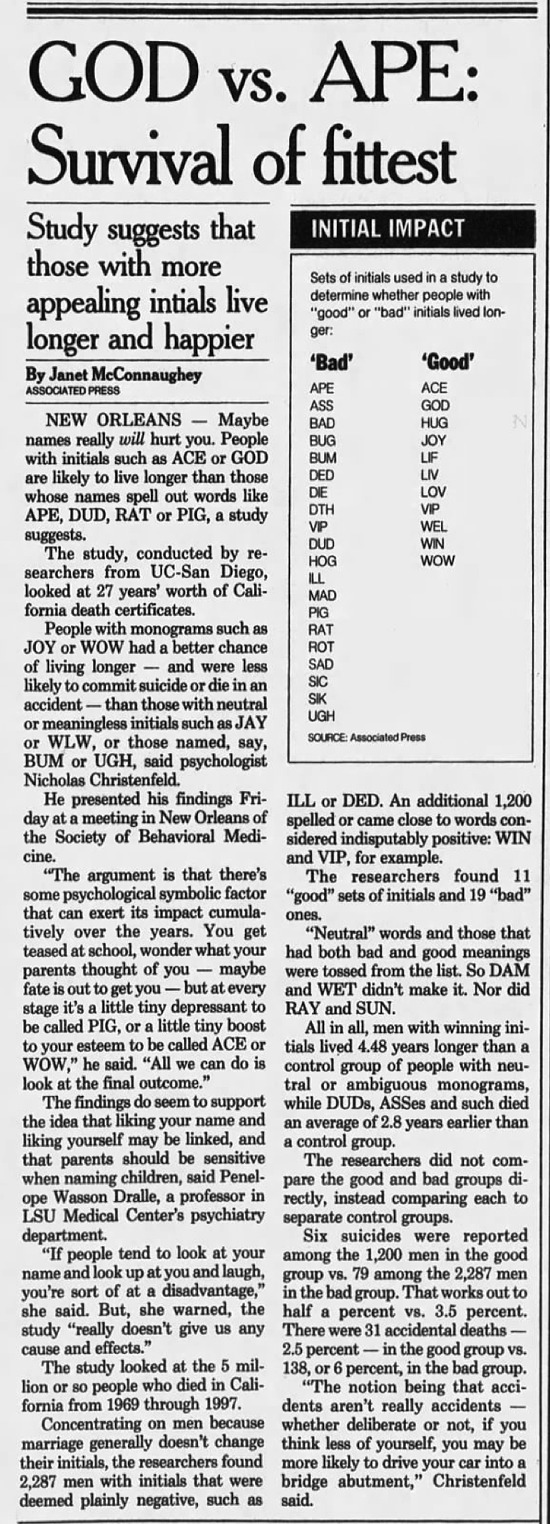
San Francisco Examiner - Mar 28, 1998
Posted By: Alex - Wed Sep 05, 2018 -
Comments (4)
Category: Odd Names, Science, Psychology
Hello, my name is Abcde
Apparently it's an increasingly popular girl's name. From stuff.co.nz:Vocativ subsequently uncovered that there were 328 girls in the US with this unusual moniker. 328!

Posted By: Alex - Thu Aug 09, 2018 -
Comments (6)
Category: Odd Names
Creap Creamer
It's one of the most famous examples of a Japanese product with a weird English name.The name is a portmanteau of 'creaming powder.' When the marketing team came up with the name back in 1960, they evidently didn't realize about the word 'creep.' Or maybe they figured that few Japanese consumers would know what a creep was.

The way the company discusses the product on the product website results in some (presumably) unintentional humor: "This creap comes in a light, convenient plastic bottle... This creap comes in a light, small plastic bottle."

More info: You Don’t Know, Creap! 3 Odd Facts About Japan’s Awkwardly Named Coffee Creamer
Posted By: Alex - Sat Jun 23, 2018 -
Comments (2)
Category: Odd Names, Products
Cat’s Phee on a Gooseberry Bush
Wikipedia cites a New Zealand Sauvignon Blanc called "Cat's Pee on a Gooseberry Bush" as an example of "wine humour." The site notes, "Humour is usually rare in the world of wine, and wine jokes may only be amusing to wine obsessives."Apparently the U.S. Bureau of Alcohol, Tobacco, and Firearms didn't find the name amusing. They forced the maker of the wine to change the name of the U.S. import version to "Cat's Phee on a Gooseberry Bush," which doesn't even make sense.
The 'cat's pee' in the name was a reference to the fact that Sauvignon Blancs are occasionally known to have that scent.
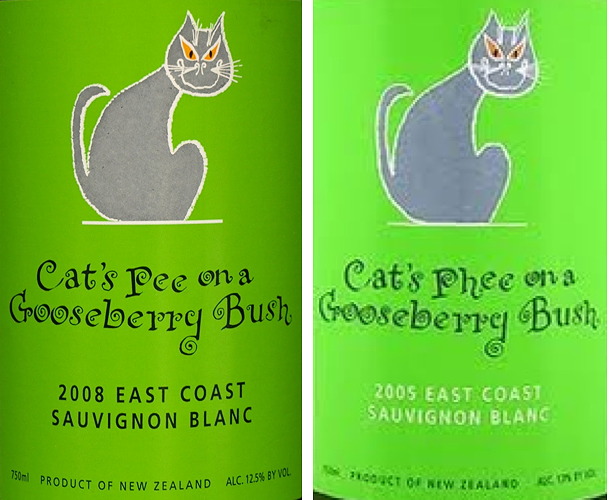
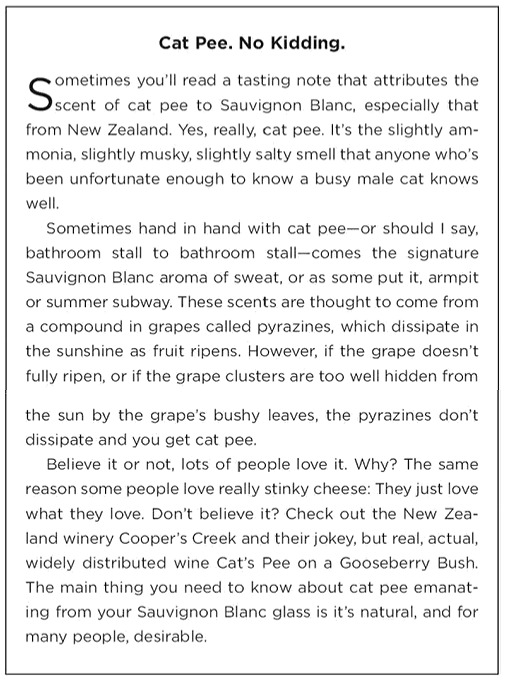
Text from, Drink This: Wine Made Simple by Dara Moskowitz Grumdahl
Posted By: Alex - Fri Jun 15, 2018 -
Comments (3)
Category: Odd Names, Alcohol
Lota Cheek
Apparently Lota Cheek was her real name.She was the daughter of Georgia farmer Leon Cheek. After winning a beauty contest in 1921, in which she was declared America's prettiest girl, she became a successful actress in New York City. In 1922, she was involved in a scandalous divorce case (her husband was simultaneously married to another woman). By 1925, she had remarried and took the name of her new husband, Sanders. The last record I can find of her is from 1927, when she was featured in an ad for Colgate toothpaste.
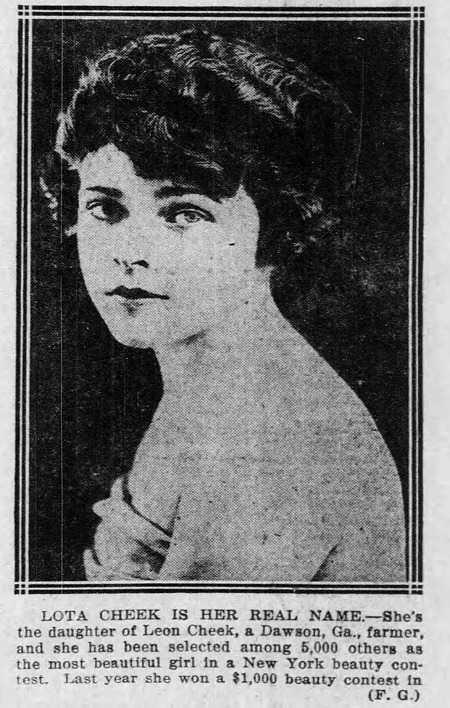
Wilmington Morning News - Jun 15, 1922
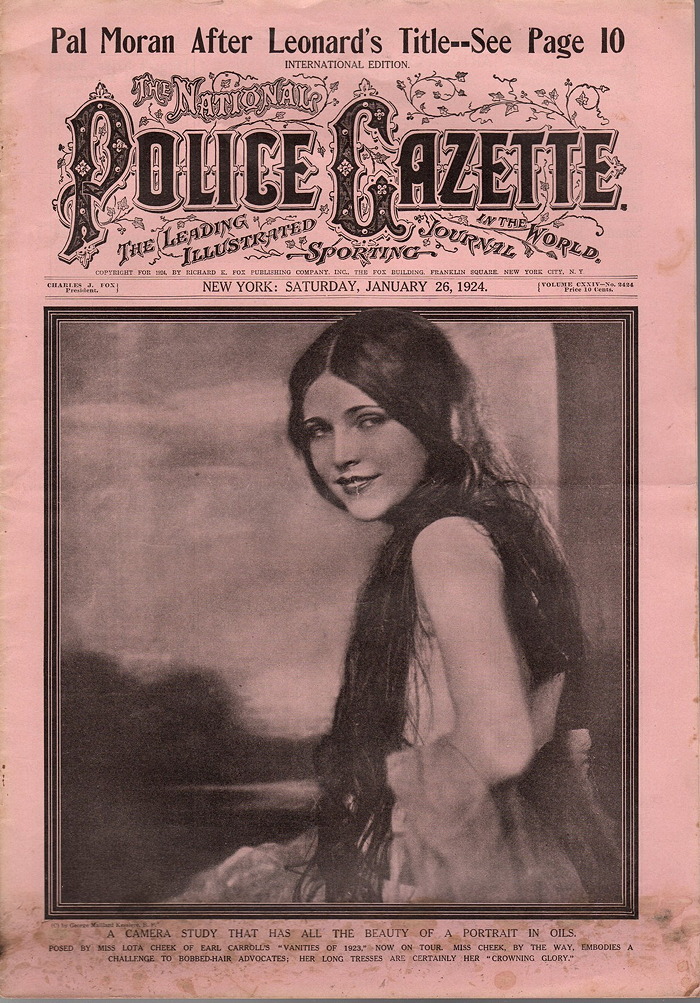
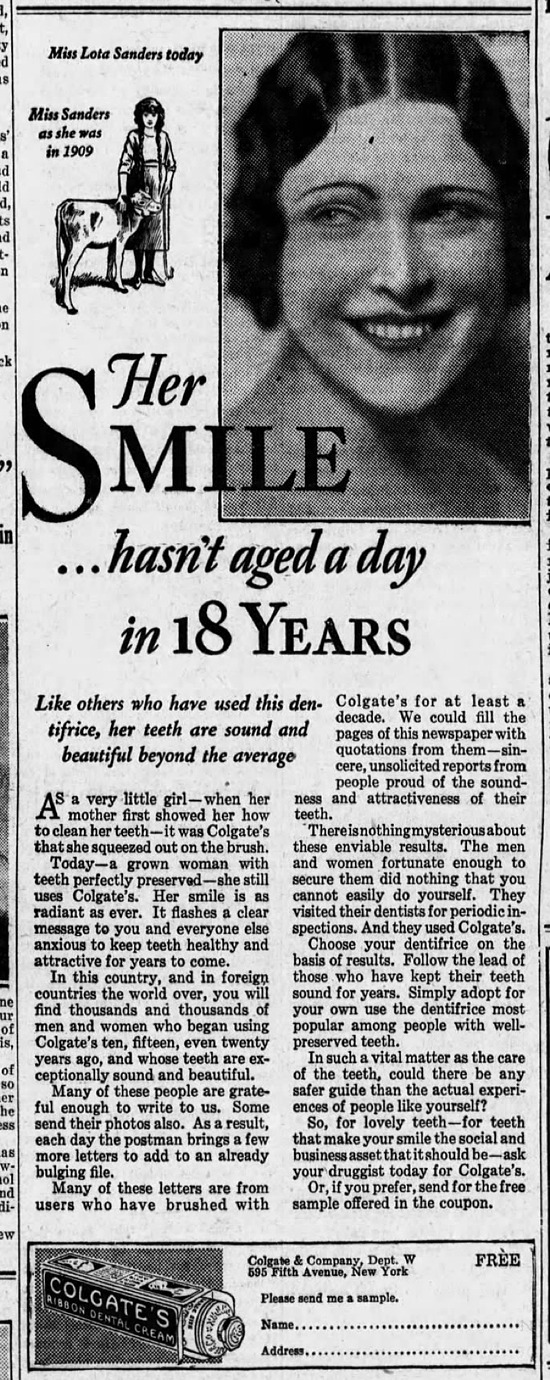
Baltimore Sun - Dec 8, 1927
Posted By: Alex - Wed May 30, 2018 -
Comments (2)
Category: Odd Names, 1920s, Actors
Cardinal Sin
In April 1976, Pope Paul VI named Monsignor Jaime L. Sin, Archbishop of Manila, as a new cardinal, thereby making him Cardinal Sin. From wikipedia: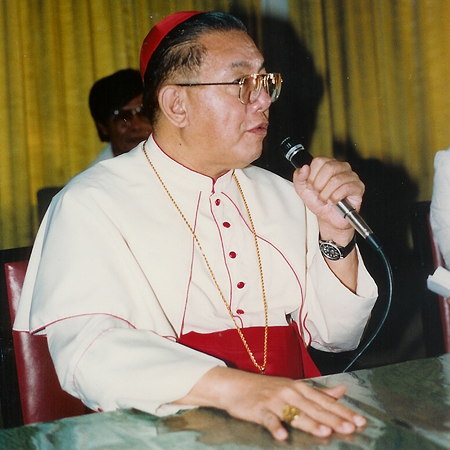
Cardinal Sin
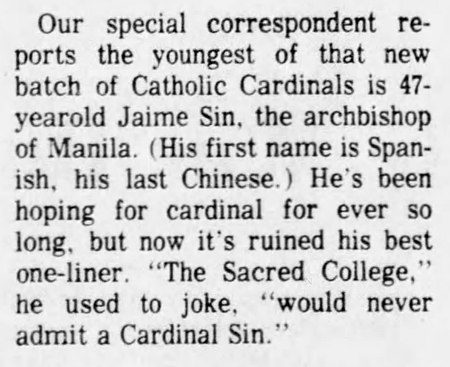
Clarion Ledger Sun - May 16, 1976
Posted By: Alex - Thu Feb 15, 2018 -
Comments (7)
Category: Odd Names, 1970s
Christophpher
June 1996: A Danish mother, Pia Agergaard, won a 9-year court battle to be allowed to name her son Christophpher. The Danish courts had tried to prevent her using the unorthodox spelling, fearing it would have a detrimental effect on her son. They insisted she use Christopher or Christoffer instead.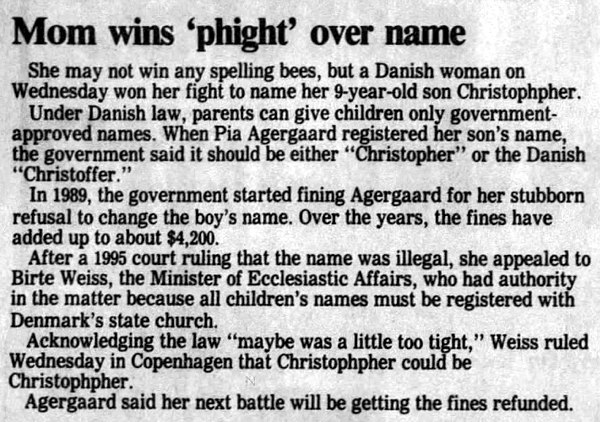
Bismarck Tribune - June 13, 1996
In 2008, a Danish newspaper (avisen.dk) checked back in with Christophpher, who by then was 21. He reported that he had never experienced any disadvantage on account of his name:
But for nine years it did not go. The Church Ministry refused to approve the special spelling. The name could be detrimental to the child, it said.
That argument shakes Christophpher at the head of today. Because he has never actually experienced his name as a disadvantage. He has never been teased because of it. And he has not had other problems with the name, for example, when he should have a passport, he says.
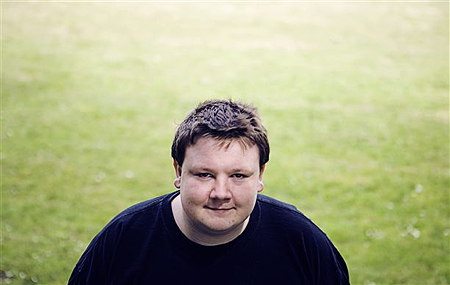
Christophpher
Posted By: Alex - Fri Dec 01, 2017 -
Comments (9)
Category: Odd Names, 1990s
Zzyzx Road
If you ever drive from LA to Las Vegas, you'll encounter Zzyzx Road just outside of Baker, CA.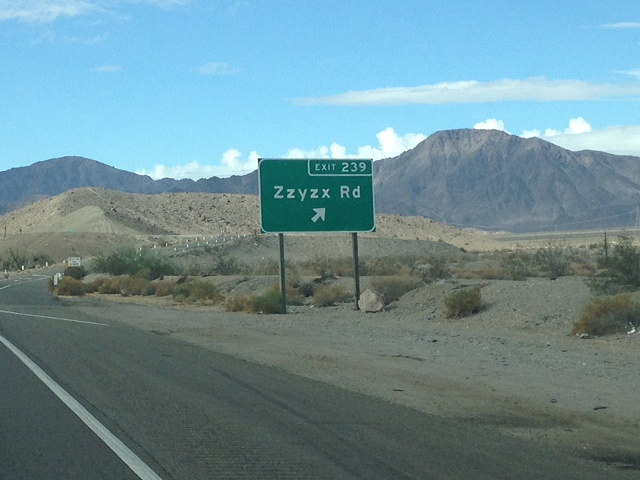
Many people wonder about the origin of this name. It came about, indirectly, because of the invention of the telephone, which led to the publication of phone directories, which then led people to want to have either the first or last name in the directory.
Entrepreneur Curtis Springer decided he wanted to be the last name in the directory, so when he opened a health spa at a natural springs in the Mojave Desert he called it Zzyzx Springs, so he could promote it as "the last word in health." By 1965 he had convinced the San Bernardino County Board of Supervisors to rename the road running to the springs Zzyzx Road. (It used to be Soda Road).
However, it turned out that Springer didn't own the land on which he built his health spa. He was squatting there illegally. And after 30 years of legal action, the Bureau of Land Management finally succeeded in kicking him off it. Since then, the land around there has been managed by California State University, which uses it as a Desert Studies Center.
It's been noted elsewhere on WU that several movies have been named after Zzyzx Road, including the record-holder for the lowest-grossing Hollywood movie ever.
More info: wikipedia
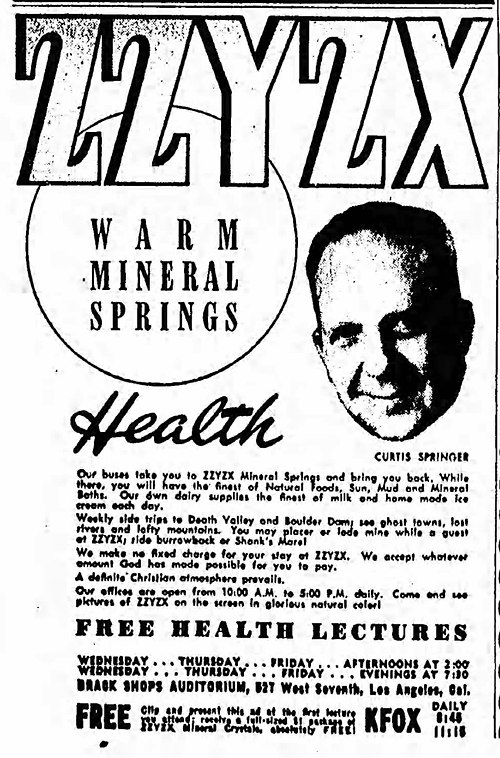
Los Angeles Times - Nov 20, 1945
Springer wasn't the only person who used the name Zzyzx to be last in the directory. There was also a Jack Zzyzx in Albuquerque, and Isadore Zzyzzx in Madison, Wisconsin. Vladamir Zzyzz took last position in the Pittsburgh directory.
I think that the Internet has made it less popular to invent z-themed last names, since not many people use phone directories any more. Sometimes one will be dropped on my front door step, and I just throw it in the trash.
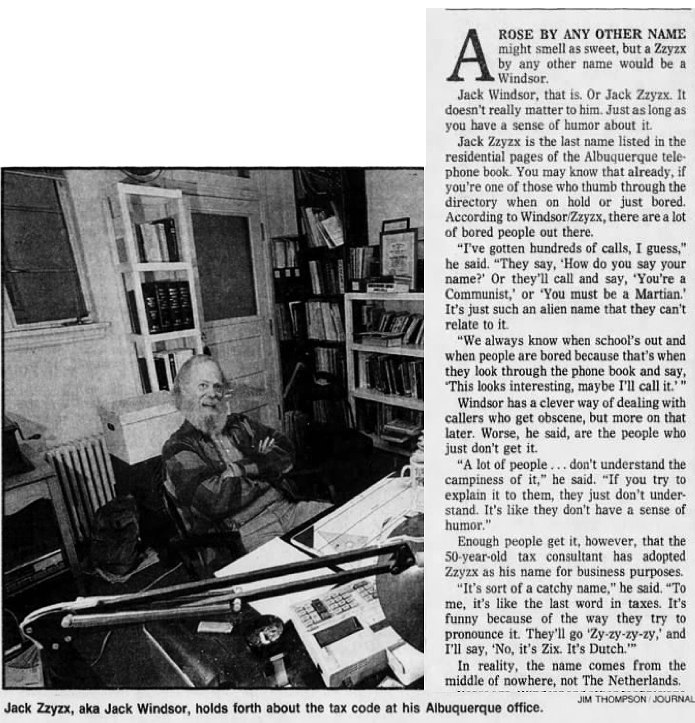
Albuquerque Journal - Dec 3, 1988
Posted By: Alex - Tue Jun 20, 2017 -
Comments (4)
Category: Odd Names
The BS Patriots

1971: After relocating the Boston Patriots from Boston to Foxborough (a half-hour south), team owner Billy Sullivan decided he needed to rename the team. So they became the Bay State Patriots.
A month later he changed the name again, to the New England Patriots. The reason this time: a radio announcer had referred to the team as the "BS Patriots." Sullivan explained, "We didn't think that abbreviation would reflect well on either the team or the league."

The Palm Beach Post - Mar 23, 1971
Posted By: Alex - Wed Apr 05, 2017 -
Comments (2)
Category: Odd Names, Sports, 1970s

| Who We Are |
|---|
| Alex Boese Alex is the creator and curator of the Museum of Hoaxes. He's also the author of various weird, non-fiction, science-themed books such as Elephants on Acid and Psychedelic Apes. Paul Di Filippo Paul has been paid to put weird ideas into fictional form for over thirty years, in his career as a noted science fiction writer. He has recently begun blogging on many curious topics with three fellow writers at The Inferior 4+1. Contact Us |




